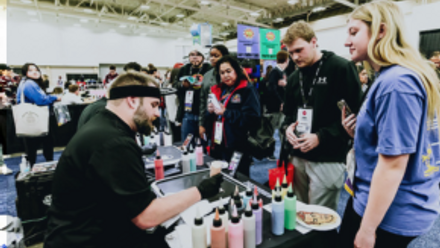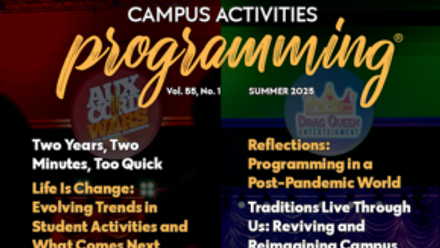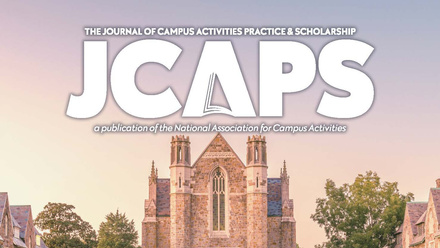Pride on Campus
College campuses, just like the world at large, are like mosaics. Each individual person brings their own life experience and culture the the table. Being LGBTQIA+ is not just an identity but also a culture. There is a rich history and vibrant community made up of people from all cultures, communities and age groups.
While Pride celebrations typically take place in June, the anniversary month of the Stonewall Riots in 1969, below are other notable dates:
- March 31 - Transgender Day of Visibility
- October - LGBTQIA+ History Month
- October 11 - National Coming Out Day
- 3rd Wednesday in October - International Pronouns Day
- November 20 - Transgender Day of Remembrance
Though these are times we can highlight the LGBTQIA+ community, there are simple ways to show pride all year long!
Pronouns: One of the easiest ways to be inclusive without any major changes is offering your pronouns when you introduce yourself. Add them to your email signature. Wear a pronoun pin on your id. Add them to your Zoom name. These little gestures can make a big impact showing that you are respectful of peoples pronouns and do not just assume you know them.
Programming: Pride events can be open to all community members and allies alike. Market Pride events for all to allow people outside of the community to learn about LGBTQIA+ culture and how to be an Ally. Keep in mind that not all community members may be out so making it a community event will allow those who are questioning or not publicly out feel comfortable.
Make yourself known as an Ally: Wearing a bracelet with a pride flag, a keychain on your backpack or a little sticker on your name badge can go a long way. Wearing your pride will help identify you as a safe, accepting person. My youngest child wears a pride bracelet and, when he was at school, one of his classmates noticed it and asked where he got it. The student came out to him and said that he was lucky to be living in a supportive family because they did not. This bracelet gave them the knowledge that they would be accepted by others even when they were not able to live their truth at home. This can make all the difference.
Learn: LGBTQIA+ history is also American history. Learn the leaders and activists, read first hand accounts and autobiographies.
Don’t know where to start? One of my favorite is the documentary Paris Is Burning which documents the ballroom scene in NYC in the 1980s. For autobiographies Pageboy by Elliot Page is stunning and raw, while Leg by Greg Marshall had me laughing at parts!
Become familiar with books and media that normalize the LGBTQIA+ experience. Authors like TJ Klune and Adam Silvera are fiction authors that have inclusive themes but are not the main point of the story.
Be Patient and Reflective: Being an ally is an ongoing process of learning and growth. Be open to feedback, be willing to make mistakes, and use them as opportunities to become a better advocate.
When you plan programming consider patronizing businesses owned by LGBTQIA+ owners. This is a surefire way to support the community!






